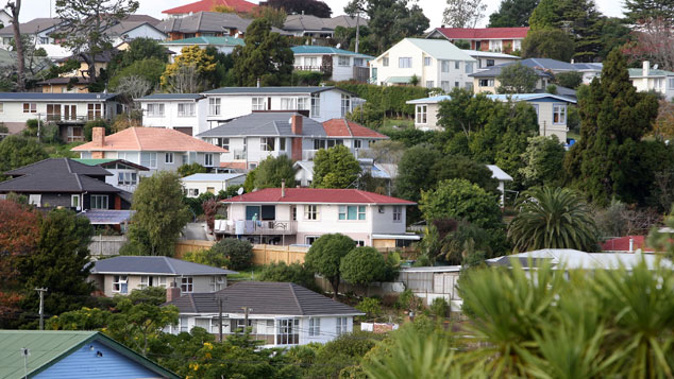
Houses in many regions have taken a pay cut with stalling sales prices cutting into capital gains.
In the past few years, homes in areas including Auckland had earned more in soaring values than the average worker earned at their job.
But new figures crunched by the Herald show the trend has reversed as the housing market plateaus and quick profits dry up.
Stellar price growth has eased across much of the country, meaning people's houses are now earning less than workers' gross pay packets across most New Zealand regions.
This year the standard Kiwi home is earning more than the average worker in only two districts - Northland and the Hawke's Bay - compared to seven last year.
The Herald has analysed Real Estate Institute of New Zealand's (REINZ) median house price data against the latest Statistics New Zealand income figures to compare house price growth with wages.
It showed that in most regions workers earned more annually than the capital gain on their properties in the year to September.
Auckland's median house price remained static year-on-year at $845,000, while the average Auckland worker earned $52,520 in 2017.
In 2016, Auckland's median house price jumped $54,000 (7 per cent), slightly more than most workers earned in their jobs.
Nationally, the average home increased in price by $6226 (1.2 per cent) in the last year to $525,000.
In comparison, the average Kiwi worker earned a median annual income of $49,868 in the last year.
It's a different scenario to that witnessed at the same time last year when house prices were still soaring.
The median annual income was $48,048 in 2016 - while the median capital gain was $30,350.
Commentators have put the stalling market down to LVR loan restrictions targeting investors, tighter lending criteria from banks and uncertainty ahead of this year's general election.
Homes.co.nz head of marketing Jeremy O'Hanlon said the reversal of fortunes for property owners and aspiring property owners was indicative of a cooling housing market.
"House prices move in cycles much more aggressively than wages. A major factor is property speculators jumping in as prices rise, then jumping out when it cools."
O'Hanlon said wages did not fluctuate as much because there wasn't the same demand on the job economy.
While the housing market seemed to have eased, O'Hanlon said affordability remained a "significant problem inhibiting home ownership for middle New Zealanders".
Only time would tell what impact the new Labour-NZ First government would make on the property market, he said.
Two regions bucked the trend.
In the Hawke's Bay, the median house price grew by $60,500 (18.3 per cent) to $392,000. The region's annual median income was $46,800.
In Northland the median house price grew by $56,000 (14.4 per cent) in the year to September to $446,000. The region's annual median income was $44,408.
/arc-anglerfish-syd-prod-nzme.s3.amazonaws.com/public/Z3MRAQICLRDV5ODYE2OJSIRPYM.jpg)
Elsewhere in the country workers tended to earn more than their house's capital gain in the last year, and in some areas house prices fell.
In the West Coast prices dropped by $38,500 (15.6 per cent) to $208,500, compared to the annual median income in the wider region, including Nelson, Marlborough and the Tasman districts of $43,264.
Meanwhile in Wellington, workers earned $53,872 in 2017, slightly more than the $51,000 house price rise to $531,000.
Harcourts chief executive officer Chris Kennedy said the more settled market was likely the "new normal".
"We couldn't continue with the frenetic rise in value that we were seeing," he said.
However the real estate boss said while growth in prices had eased, affordability was still an issue and a supply shortage persisted.
"Affordability is nine times the median household income in Auckland. In Wellington it is five times, Nelson it is six times, Christchurch it is four almost five, and Dunedin it is almost five."
He said Labour-NZ First's planned policies, such as immigration cuts, banning foreign buyers from purchasing existing homes, and plans for new social housing would likely have an impact.
But Kennedy said the devil would be in the detail.
"It will be interesting to see what Mr Peters and Ms Ardern will do."
Take your Radio, Podcasts and Music with you








